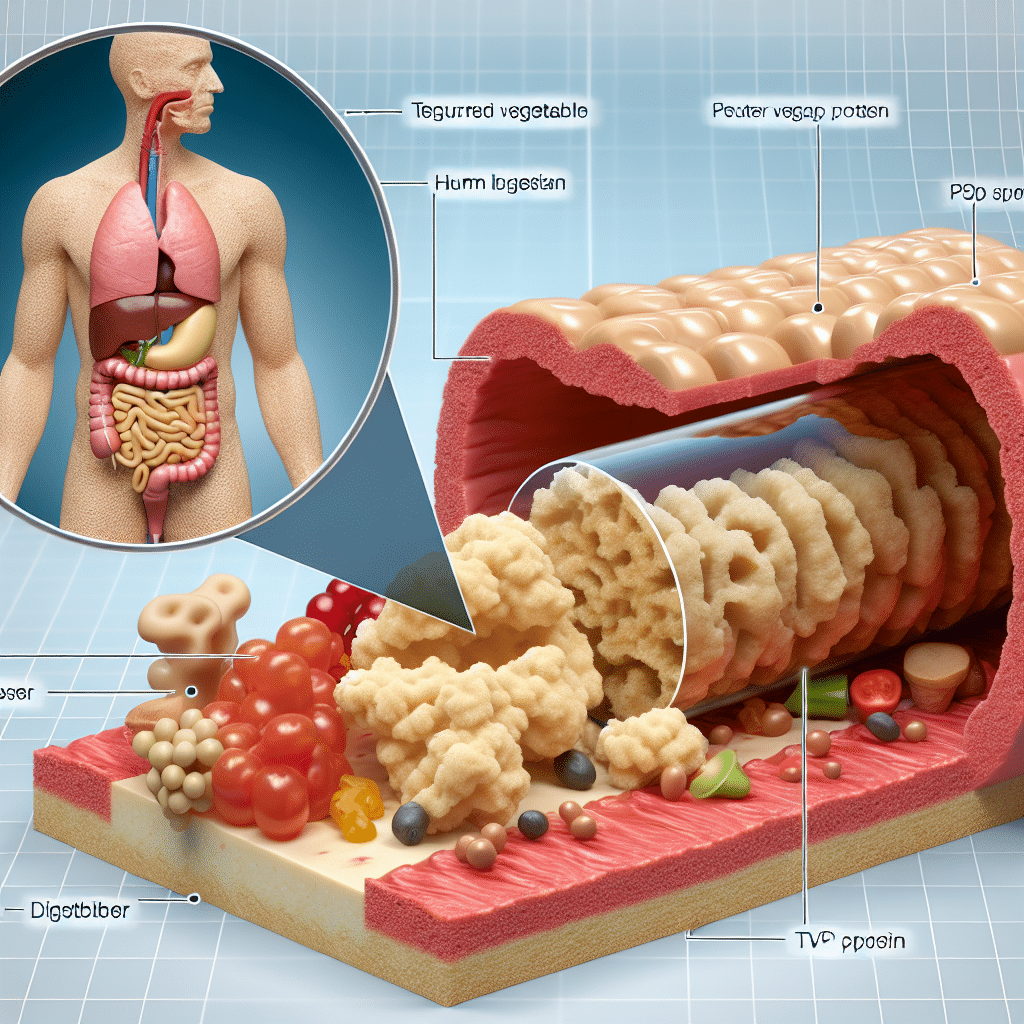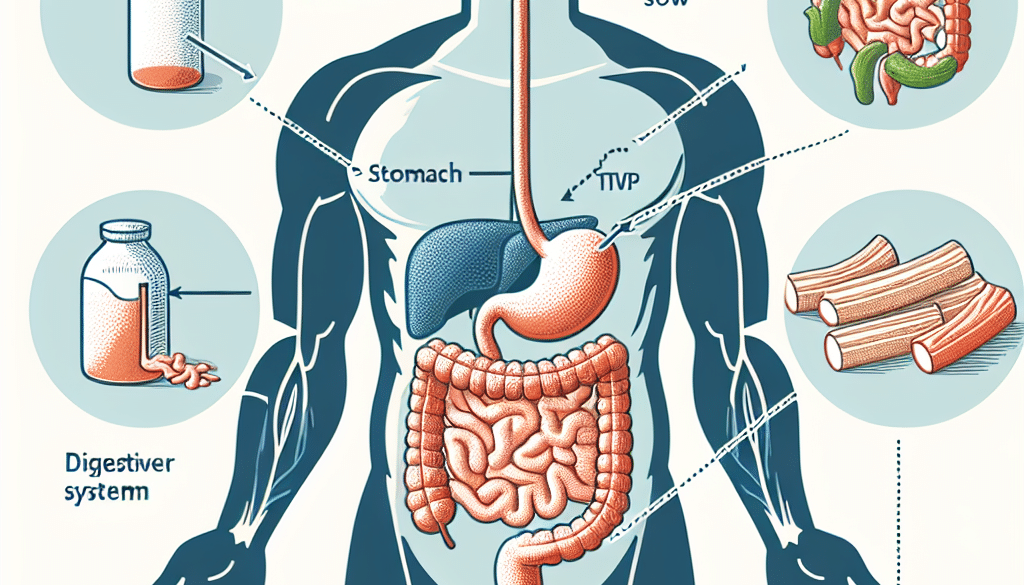Is TVP Digestible?
-
Table of Contents
- Understanding the Digestibility of TVP: A Comprehensive Guide
- What is Textured Vegetable Protein?
- Nutritional Profile of TVP
- Is TVP Digestible?
- Factors Affecting Digestibility
- Comparing TVP to Other Protein Sources
- Case Studies and Research
- Potential Digestive Concerns with TVP
- Incorporating TVP into a Balanced Diet
- Preparing TVP for Optimal Digestibility
- Conclusion: The Digestibility of TVP
- Discover ETprotein’s High-Quality Protein Products
Understanding the Digestibility of TVP: A Comprehensive Guide

Textured Vegetable Protein (TVP) has become a staple in vegetarian and vegan diets as a versatile and protein-rich food ingredient. However, consumers often wonder about its digestibility and how it compares to other protein sources. This article delves into the digestibility of TVP, exploring its nutritional benefits, potential concerns, and how it fits into a healthy diet.
What is Textured Vegetable Protein?
Textured Vegetable Protein, commonly known as TVP, is a highly nutritious soy product. It’s made by extracting soy oil from soybeans, leaving behind a defatted soy flour. This flour is then cooked under pressure, extruded, and dried to produce a variety of textures and shapes. TVP is known for its ability to absorb flavors and mimic the texture of meat, making it a popular meat substitute.
Nutritional Profile of TVP
TVP is celebrated for its high protein content, low fat, and absence of cholesterol. It’s also a good source of dietary fiber, iron, magnesium, and phosphorus. The nutritional profile of TVP makes it an attractive option for those looking to increase their protein intake without the added calories and fats associated with some animal proteins.
Is TVP Digestible?
The digestibility of a protein is measured by its ability to be broken down and absorbed by the body. TVP, being a plant-based protein, has a digestibility score that is slightly lower than animal proteins but still within a range considered to be highly digestible. The processing of soy into TVP actually improves its digestibility by removing some of the factors that can hinder protein absorption.
Factors Affecting Digestibility
- Anti-Nutritional Factors: Raw soybeans contain substances that can interfere with nutrient absorption. However, the production process of TVP deactivates most of these anti-nutritional factors, enhancing its digestibility.
- Fiber Content: TVP contains dietary fiber, which is beneficial for digestive health. While too much fiber can affect protein absorption, the moderate amount in TVP is unlikely to cause issues for most people.
- Protein Quality: The quality of protein in TVP is high, containing all essential amino acids needed by the body, although it’s slightly lower in methionine.
Comparing TVP to Other Protein Sources
When compared to other protein sources, TVP holds up well. Animal proteins like meat, eggs, and dairy are considered complete proteins with high digestibility. However, TVP is a viable alternative for those seeking plant-based options, as it also contains all essential amino acids, though in varying proportions.
Case Studies and Research
Several studies have investigated the digestibility of soy proteins. A study published in the “Journal of Agricultural and Food Chemistry” found that the digestibility of soy protein is comparable to that of meat protein. Another study in the “Journal of Nutrition” concluded that soy protein supports muscle protein synthesis effectively, which is a key indicator of protein digestibility and utilization.
Potential Digestive Concerns with TVP
While TVP is generally well-tolerated, some individuals may experience digestive issues. These can include bloating, gas, or discomfort, often attributed to the fiber content or the presence of residual anti-nutritional factors in some TVP products. It’s important to introduce TVP gradually into the diet to allow the digestive system to adjust.
Incorporating TVP into a Balanced Diet
TVP can be a healthy addition to a balanced diet, especially for those looking to reduce meat consumption or increase plant-based proteins. It’s versatile and can be used in a variety of recipes, from tacos and chili to stews and burgers.
Preparing TVP for Optimal Digestibility
- Rehydrate TVP with warm water or broth before use to improve texture and digestibility.
- Combine TVP with a variety of other protein sources to ensure a balanced intake of amino acids.
- Introduce TVP gradually into your diet to allow your digestive system to adapt.
Conclusion: The Digestibility of TVP
In conclusion, TVP is a digestible and nutritious plant-based protein source that can be a valuable part of a balanced diet. Its high protein content, along with a good amino acid profile, makes it an excellent alternative to animal proteins. While some individuals may need to introduce it slowly to avoid digestive discomfort, most will find that TVP is a versatile and healthful addition to their meals.
Discover ETprotein’s High-Quality Protein Products
If you’re looking for premium plant-based protein options, consider ETprotein’s range of products. They offer a variety of organic and non-GMO protein powders, including rice protein, pea protein, and more, catering to diverse dietary needs and preferences. ETprotein’s commitment to quality ensures that you’re getting a product that’s not only digestible but also supports your health and wellness goals.
About ETprotein:
ETprotein, a reputable protein and L-(+)-Ergothioneine (EGT) Chinese factory manufacturer and supplier, is renowned for producing, stocking, exporting, and delivering the highest quality organic bulk vegan proteins and L-(+)-Ergothioneine. They include Organic rice protein, clear rice protein, pea protein, clear pea protein, watermelon seed protein, pumpkin seed protein, sunflower seed protein, mung bean protein, peanut protein, and L-(+)-Ergothioneine EGT Pharmaceutical grade, L-(+)-Ergothioneine EGT food grade, L-(+)-Ergothioneine EGT cosmetic grade, L-(+)-Ergothioneine EGT reference grade and L-(+)-Ergothioneine EGT standard. Their offerings, characterized by a neutral taste, non-GMO, allergen-free attributes, with L-(+)-Ergothioneine purity over 98%, 99%, cater to a diverse range of industries. They serve nutraceutical, pharmaceutical, cosmeceutical, veterinary, as well as food and beverage finished product distributors, traders, and manufacturers across Europe, USA, Canada, Australia, Thailand, Japan, Korea, Brazil, and Chile, among others.
ETprotein specialization includes exporting and delivering tailor-made protein powder and finished nutritional supplements. Their extensive product range covers sectors like Food and Beverage, Sports Nutrition, Weight Management, Dietary Supplements, Health and Wellness Products, and Infant Formula, ensuring comprehensive solutions to meet all your protein needs.
As a trusted company by leading global food and beverage brands and Fortune 500 companies, ETprotein reinforces China’s reputation in the global arena. For more information or to sample their products, please contact them and email sales(at)ETprotein.com today.














